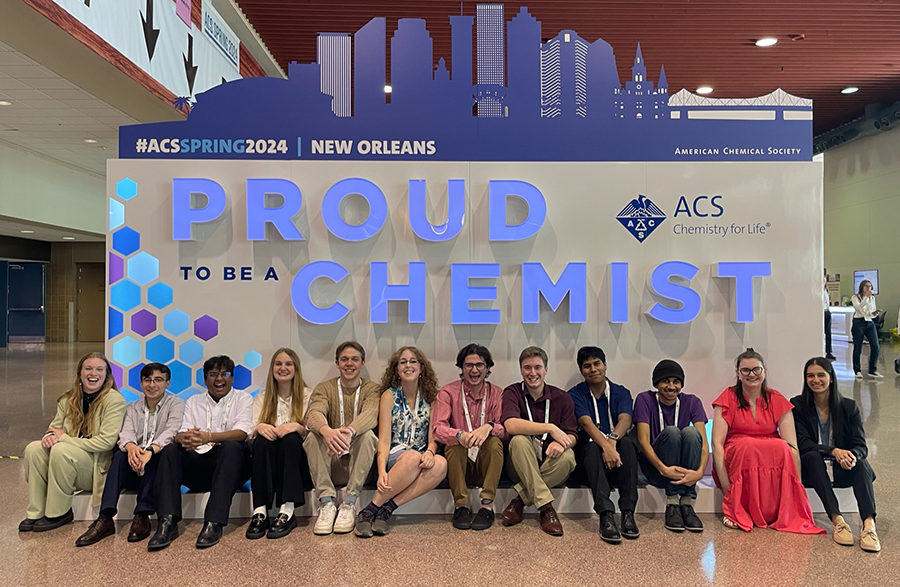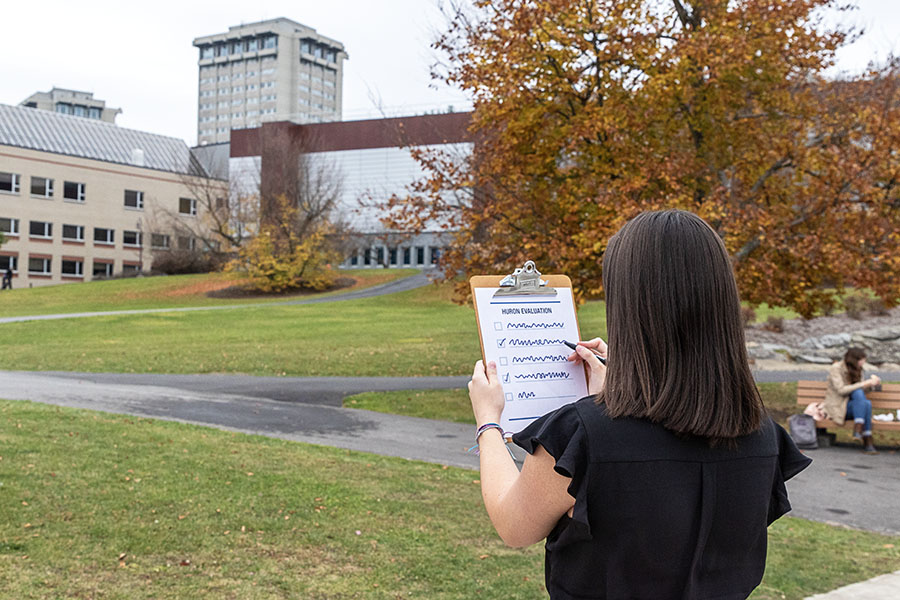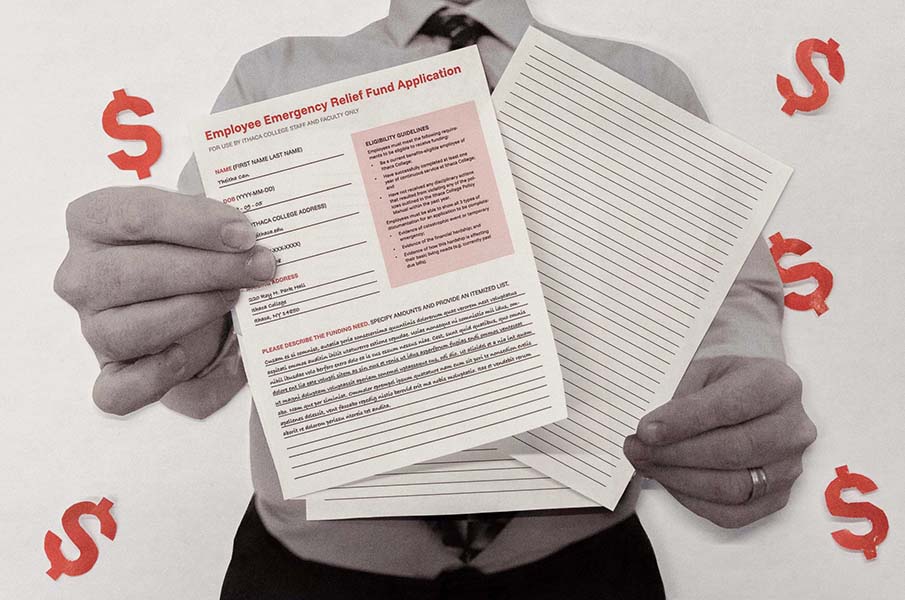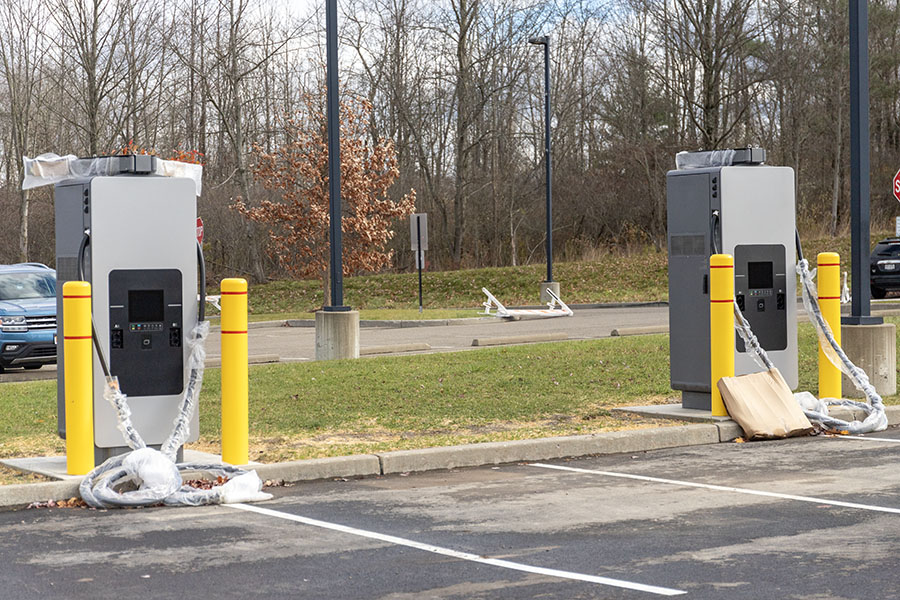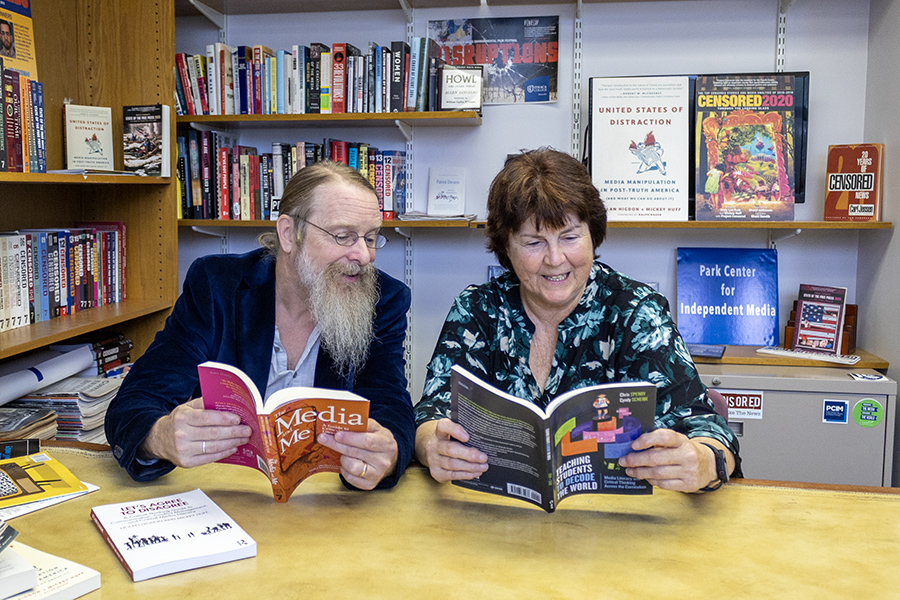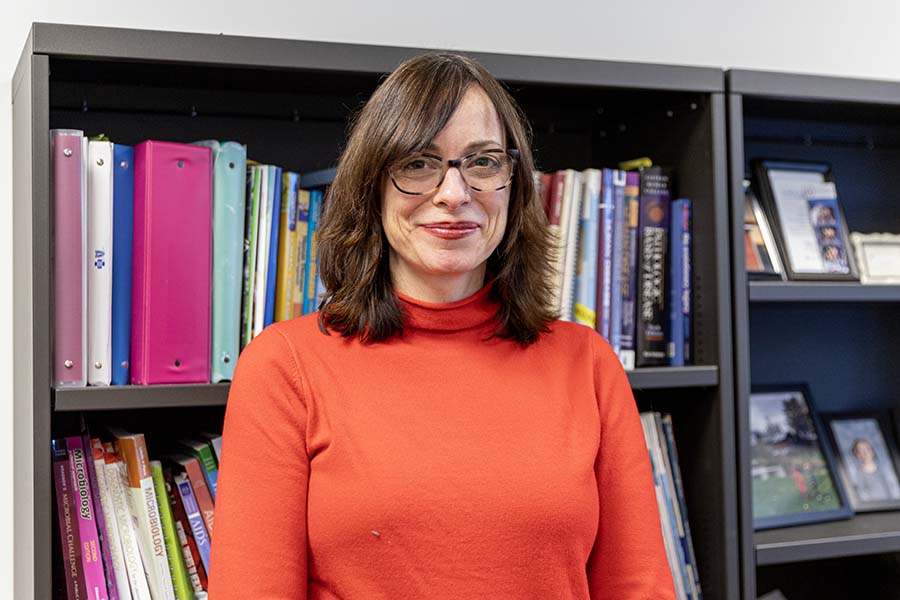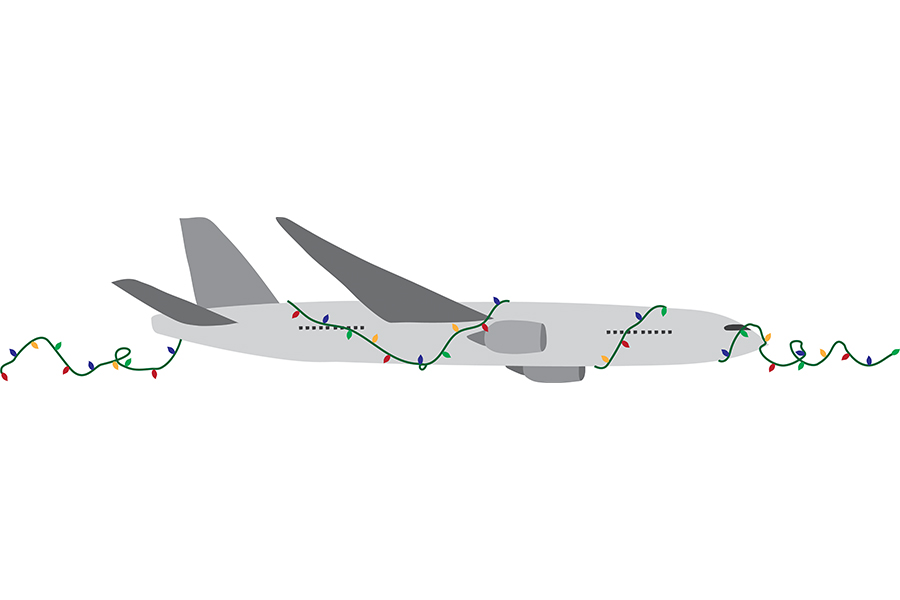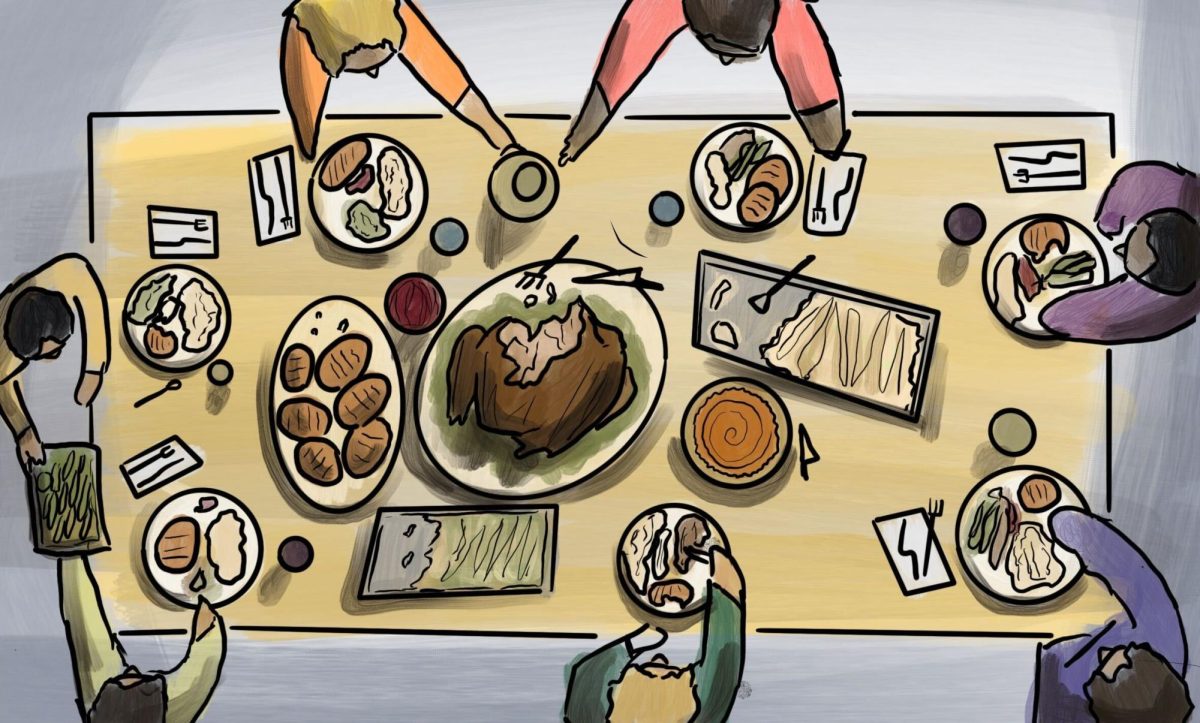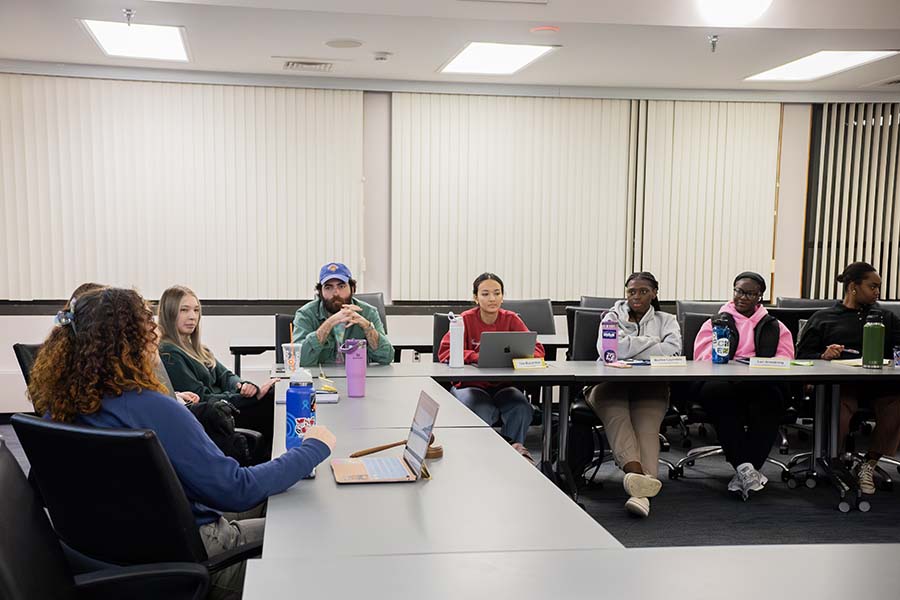Every year, Ithaca College’s Department of Chemistry sends students to the American Chemical Society (ACS) conference to gain experience with research and networking opportunities. This year, Becky Craig, assistant professor in the Department of Chemistry, said she took 13 students to the conference, the most she has ever taken during her three years at the college.
While New York may have the third-largest chemical manufacturing industry in the U.S., Louisiana became the temporary hub of chemistry with the ACS’ annual conference from March 17–21. ACS is one of the largest organizations for the chemical industry in the U.S.
The college offers a Bachelor of Science degree in chemistry that is accredited by the ACS, certifying the program as a rigorous curriculum that aligns with industry standards.
Craig said that for students who are majoring or minoring in chemistry, the annual conference acts as exposure to the world of chemistry beyond what the college has to offer. For graduating seniors and other students working on research, the ACS conference offers them a chance to present the research that they have been working on.
“It’s just a great place where anyone who is involved in some aspect of chemistry — whether it’s students, professors, researchers, companies that make instrumentation or funding agencies — [to] come together and just learn about what’s happening in the community and make connections,” Craig said. “All of the students that go are presenting [research] that they have done. And a lot of them are seniors, so it’s kind of their senior capstone project that they’re presenting.”
Craig mentioned the appeal of the ACS conference as a networking opportunity for students to think about post-graduate opportunities in academia or the chemical industry.
“If they’re interested in grad school, there’s a lot of programs … at the conference where they can learn about the different disciplines and research topics and things that are available for continuing in grad school,” Craig said. “If they want to go into industry, they can learn about different job opportunities and things like that. It’s a big networking event.”
ACS Fellow Lynn Hogue said via email that ACS is one of the world’s largest organizations for scientific professionals in chemistry, but it is also more than just a conference.
“[ACS] is not just an industry event,” Hogue said. “All types of chemists from academia, industry, government [and] testing labs attend. … Every type of chemistry and field is represented. No matter what the student’s interest, they will find something for them at an ACS meeting.”
As a former educator, Hogue said she recommended her students to visit the conference for networking and to connect with industry professionals and academics.
At ACS, talks by leaders from the industry and in academia were presented, including sessions specifically for undergraduate students that might go into graduate school. According to Hogue, over 900 research projects were presented at this year’s ACS conference, all of them by undergraduate students.
For students like sophomore Rishabh Sen, the conference brought up an exciting opportunity for him to present his research. Sen said the benefits of presenting were being able to communicate and consolidate their learning to others.
“It forced me to be able to learn how to communicate effectively and efficiently to a larger audience,” Sen said. “It’s something that [professionals need to do] in academics, in both the natural sciences and information sciences … across years in their careers, so it was a really good stepping stone for that.”
Back on South Hill, the college provides opportunities to conduct and present research with classes in research methodology for students, independent study in classes or through the annual Whalen Symposium each spring for students who are not required to perform research as part of their degree program.
Some programs within the School of Humanities & Sciences and School of Health Science and Human Performance require students to undertake a research project, as is the case for the Department of Physical Therapy.
John Winslow, associate professor in the Department of Physical Therapy, said he believes that the implementation of research into the curriculum allows students to apply what they learn in the classroom to real-world settings.
“Within all the departments, they have a research component because a lot of the programs within HSHP are clinical, so students are taught evidence-based practices,” Winslow said.
Winslow explained that the department has what is called “clinical experiences” where students go out to local clinics and apply what they have learned in the classroom.
Students in the six-year clinical doctorate are expected to write a case report in their sixth year that highlights a case they have worked on during their fifth-year clinical. Students also have the option to take on a research project with a faculty adviser that starts in their fifth year and continues into their sixth year.
However, research is not required in all STEM-related programs to graduate. For the Department of Physics and Astronomy, research is strongly encouraged but not required.
Luke Keller, professor in the Department of Physics and Astronomy, said professors often reach out to students to think about research as early as their first year.
“We encourage students to interview faculty or have meetings with faculty, where the faculty explain what they do, and see if the students are interested,” Keller said.
In the Department of Physics and Astronomy, students are then offered to sign up for a research class that ranges between half a credit to four credits.
In many academic departments, research is stressed to be important to the advancement of these fields at the college. Keller said undergraduate students benefit from pursuing research as topics can line up with what is being taught in classes, and also because it strengthens the relationship between a faculty adviser and student.
“They’re performing science,” Keller said. “They’re doing science instead of learning about it in the classroom setting, or even in a lab setting. …They’re applying all those skills and academic lessons to something where they’re actually helping learn something new. It’s what they will do as professional scientists and engineers when they graduate.”


